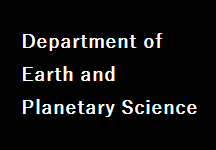






Our Department
Earth and Planetary Science covers various fields: solid Earth, atmosphere and ocean, surface environments including biosphere, planets and minor objects in the solar system, and space beyond the solar system. Furthermore, it covers a wide range of time span from the evolution of the solar system to the future of the Earth system and various timescales from billion years to hours or shorter. Diverse research methods are thus required in such a wide variety of research fields: field work, observation, laboratory experiments, chemical analyses, theoretical modeling, simulations and so on. Recent progress in Earth and planetary science to understand the large-scale complex entire Earth or planetary system requires interdisciplinary research and education on the basis of strong programs in the various disciplines in this field.
We reorganized the four departments, Earth and Planetary Physics, Geology, Mineralogy, and Geography, into the Department of Earth and Planetary Science in 2000 both for the enhanced research across the breadth of earth and planetary science and for more flexible and effective graduate and undergraduate education.
The five core research groups in the department, Atmospheric and Oceanic Science, Space and Planetary Science, Earth and Planetary System Science, Solid, and Earth Science, Geosphere and Biosphere Science, are in cooperation with each other as well as with affiliated institutions* to be the core institute for both research and education in Earth Planetary Science in Japan. (*The affiliated institutions in the University of Tokyo are the Ocean Research Institute, the Earthquake Research Institute, the Institute of Solid State Physics, the Center for Climate System Research, the Center for Spatial Information Science, the Research Center for Advanced Science and Technology, the University Museum, the Graduate School of Frontier Sciences, the Graduate School of Arts and Sciences, the Laboratory for Earthquake Chemistry, the Department of Astronomy and the Department of Physics. The Japan Aerospace Exploration Agency and the High Energy Accelerator Research Organization, both of which are not the institutions in the University of Tokyo, are also in partnership with us.)
The educational program aims to train doctoral-level researchers who can become leading figures in their respective fields and masters-level students and undergraduates who will take a variety of positions in government, industry, and education, where it is hoped that they will be able to make significant contributions to society.
Another important objective of the department is to contribute directly to society through participation in national and international programs of applied research in areas such as global climate change or mitigating earthquake hazards.




